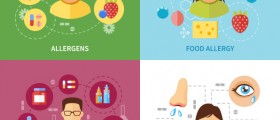
Allergic reactions to medication are rare, but they do occur. There are several types of reaction that might occur, from mild rash to severe effects on vital bodily systems. Most commonly, the skin is the organ that is affected by allergy to drug use. It is vital that allergy of this type is recognized, because in some cases, these allergies can even be life threatening. In many cases, the reaction will not occur the first time you take a particular medication, but it is more likely that the reaction will occur the next time you do so.
When to seek medical assistance or care
If you do suffer a reaction, try to contact the health-care provider who supplied or advised the use of this type of medication. If you are suffering from mild symptoms, it might be advisable to cease using the medication, or at least to switch to a different type of medication. Antihistamines might be prescribed in order to resolve the symptoms. If you can't reach this person immediately, you should try to find other options, such as attending the local emergency department at the soonest opportunity. If you are vomiting or have a fever, stop using the medication immediately and seek medical attention. Similarly, if you are having breathing difficulties, do not delay in going to an emergency department. Do not drive yourself, call for an ambulance to take you there.
Treatment
Treatment will depend on the type and severity of the allergic reaction. Generally, the types of reaction that occur are mild allergies (such as hives or itching), moderately severe allergy or severe allergy. For mild allergies, treatment will seek to provide symptomatic relief. Medications used might be antihistamines such as Diphenhydramine. In many cases, you will be advised to stop taking the medication that has caused the problem.
Moderate allergies will generally require a cessation of administration of the offending medication. Similarly to mild allergies, antihistamines might be used in the treatment of this type of allergy. This includes medications such as oral steroids, cimetidine, famotidine or ranitidine.
Severe cases of reactions to medication will require the prompt administration of powerful medications. Again, antihistamines might be recommended for this treatment process. In addition to these medications, one might be advised to use medications such as epinephrine, which can be given by IV, or through injection or inhalation. Severe allergies might require a period of hospitalization, therapy and observation.

















Your thoughts on this
Loading...